Industrial cause pollution the most

Currently, the world has been suffering from a “series” of extreme climate change, especially global warming. This has led to an imbalance in the ecosystem on Earth, which has extremely serious effects on the habitat of humans, other plants and animals. The main reason is that the rapid growth of the economy led to the huge development of manufacturing industries, which indirectly heavily “destroyed” the living environment.
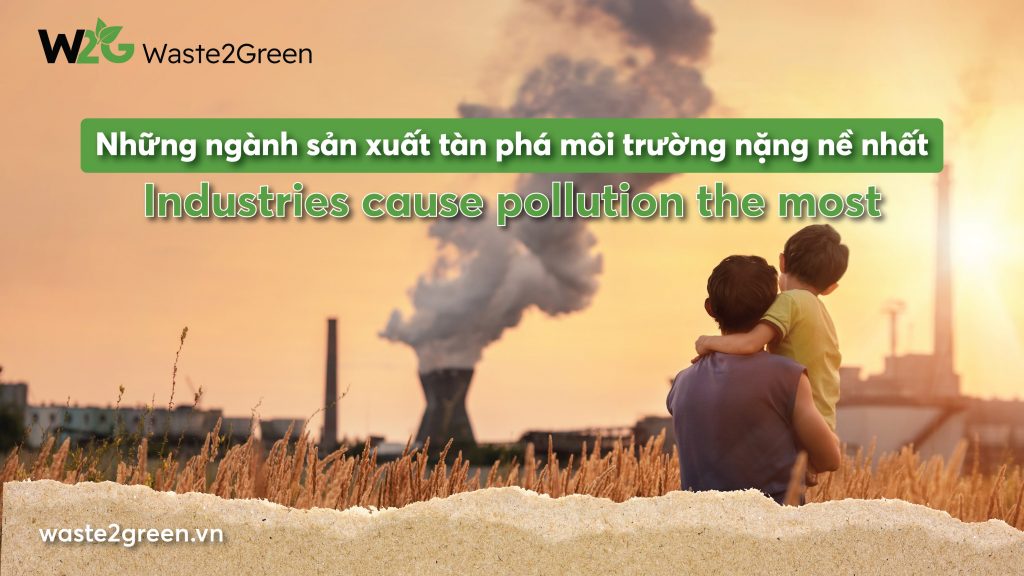
Industries that cause the most water pollution
Facing the strong development of the global economy, the environment is facing the risk of recession, one of the most alarming things is that the water source is being seriously polluted. This leads to an imbalance of ecosystems on Earth, causing great changes in the global climate in a negative direction. So where are the industries that cause the most water pollution?
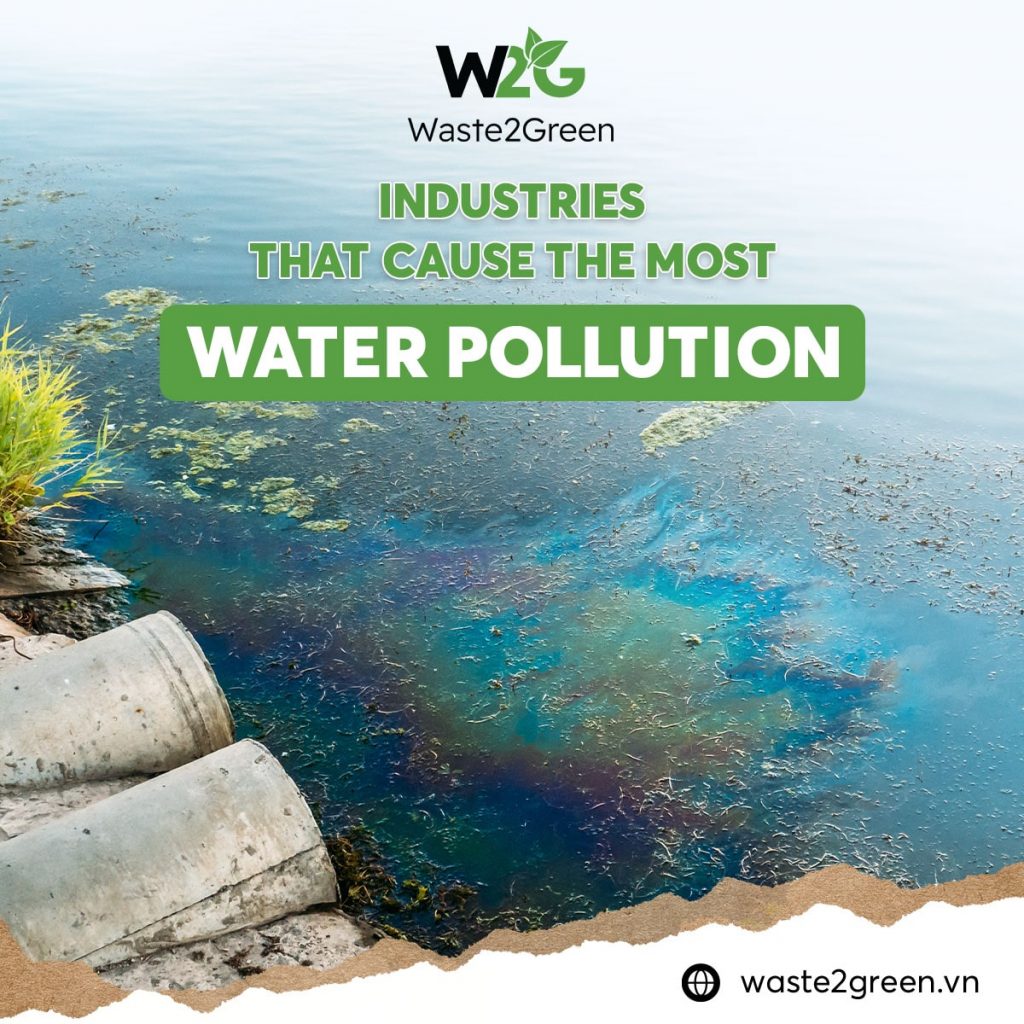
1. Water pollution due to agricultural manufacturing
When it comes to agriculture, we often think of this as a green production industry, but it is agricultural production activities that directly discharge a large amount of organic waste into the environment, leading to serious water pollution.
In livestock activities, we can easily encounter familiar activities as a habit of farmers such as directly dumping organic waste (livestock leftovers) in landfills, discharging untreated livestock waste down the drain, even dumping dead animal carcasses into rivers, ponds, lakes, etc. It is these actions that unintentionally create favorable conditions for microorganisms or infectious pathogens to be born during the decomposition process, especially organic waste, especially organic waste, which affects not only the environment but also threatens human health.
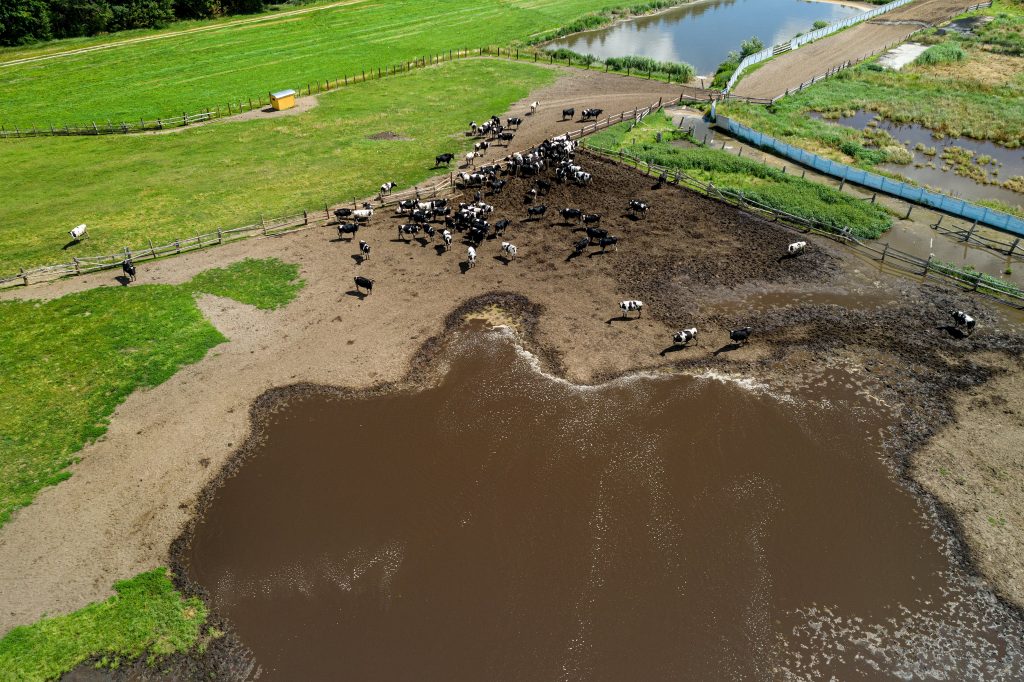
In agricultural manufacturing, in addition to the use of plant protection chemicals, pesticides, herbicides, etc. the use of exceeding the recommended dosage is the main cause of pollution of surface water and groundwater due to chemical residues. Besides, in the growing process, especially in the harvesting stage, it is difficult for farmers to avoid damaged, substandard agricultural products or discarded agricultural products (such as straw, straw, leaves, etc.) etc. This has resulted in a huge amount of organic waste being discharged directly into the environment such as landfills, rivers, lakes, etc., seriously affecting the living environment. Moreover, organic waste is very easy to cause stench and leachate in the process of decomposition, leading to water pollution not only surface water but also seep into groundwater, seriously affecting human health.
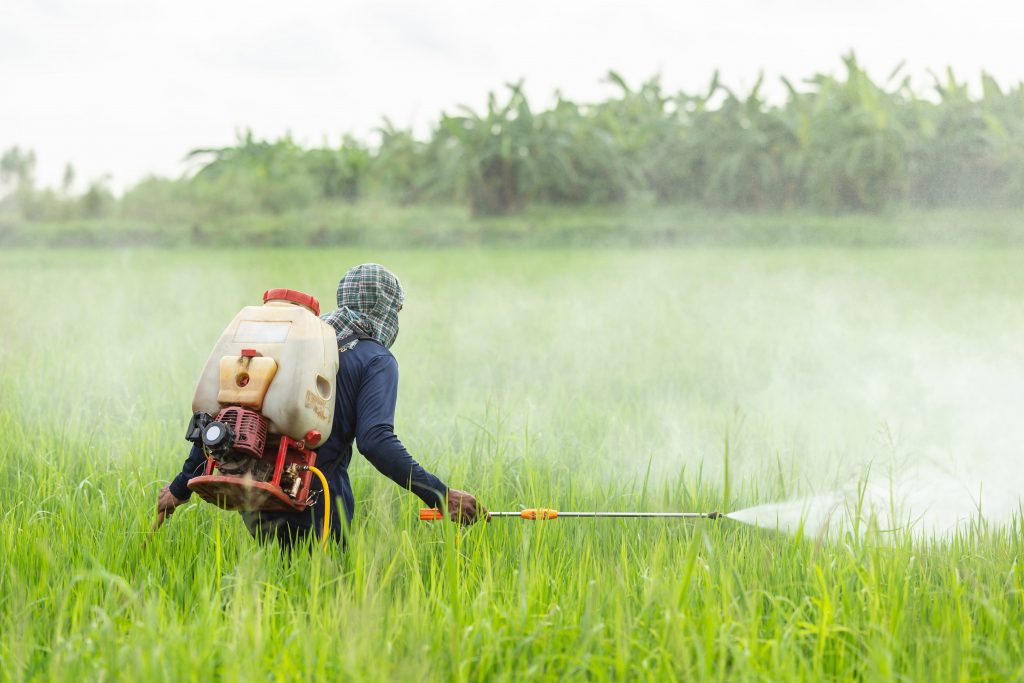
2. Water pollution from the plastic manufacturing industry
According to research results published on Wikipedia, as of 2019, 368 million tonnes of plastic is produced each year. From the 1950s up to 2018, an estimated 6.3 billion tonnes of plastic has been produced worldwide, of which an estimated 9% has been recycled and another 12% has been incinerated. So how will the remaining tons of untreated plastic affect when it comes into direct contact with water?
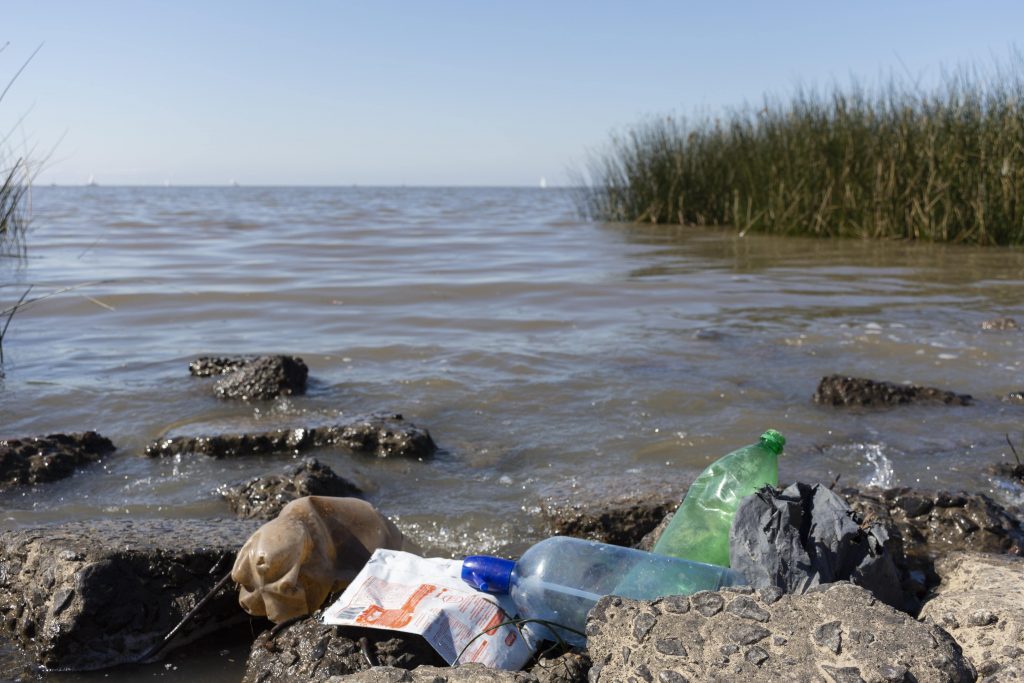
There are dozens of harmful chemicals used in the plastic manufacturing process. Along with that, the indiscriminate production of plastic has caused negative impacts and has become a threat to maintaining a healthy living environment. When plastic materials are thrown into the environment for many years instead of being recycled or using waste disposal technology, they can seep into the ground and form toxic chemicals, typically microplastics – pollutes not only groundwater and surface water, but also extremely dangerous to human health and aquatic animals and plants.
According to a report by the United Kingdom’s Environmental Investigations Agency (EIA), within the next five years, there will be 250 million metric tons of plastic in the world’s oceans. By 2040, there will be 700 million tons—the equivalent of the weight of all the fish in the ocean combined. And by 2050, plastic will outweigh fish in the planet’s oceans.
3. Water pollution from the oil industry
The mining industry produces a lot of water pollutants. Moreover, the mining process has been caused largely by the risk of cracking the earth’s surface and allowing toxic substances to seep into the water in greater concentrations. Typical are lead, mercury and arsenic. In addition, there are many other harmful substances, mainly heavy metals. Any substance can potentially contaminate water sources, including groundwater and surface water around mining areas.
3. Water pollution from the garment industry
The garment industry seems innocuous, but it is responsible for being one of the biggest causes of water pollution that the world is facing. According to the United Nations Economic Commission for Europe (UNECE), fashion is the second most polluting industry in the world, after the oil industry, because to produce a cotton shirt, people must use up to 2.7 m3 of clean water and 150 grams of chemicals. Moreover, nowadays fabrics are increasingly using synthetic fibers such as polyester, leading to the use of a large amount of dyes and other synthetic additives, making it difficult or impossible for the wastewater discharged after the dyeing process to decompose microorganisms, causing environmental pollution in the wastewater.
4. Water pollution from the atomic energy industry
The nature of the atomic energy industry is radioactive. In particular, this industry also uses water as a main source of fuel. Therefore, people often design clean water intake areas next to the plant for convenient operation. This is also the reason why water sources around nuclear plants are likely to be exposed to radioactive substances, and it can even affect groundwater and surface water hundreds of kilometers away. Therefore, the level of pollution that this industry causes to water sources, human health and animals – plants is assessed as extremely serious.
Industries that cause the most air pollution
Like water, air is very important for the existence of all living things on this planet. Along with the great development, up to now, air pollution is being aggravated by which industries?
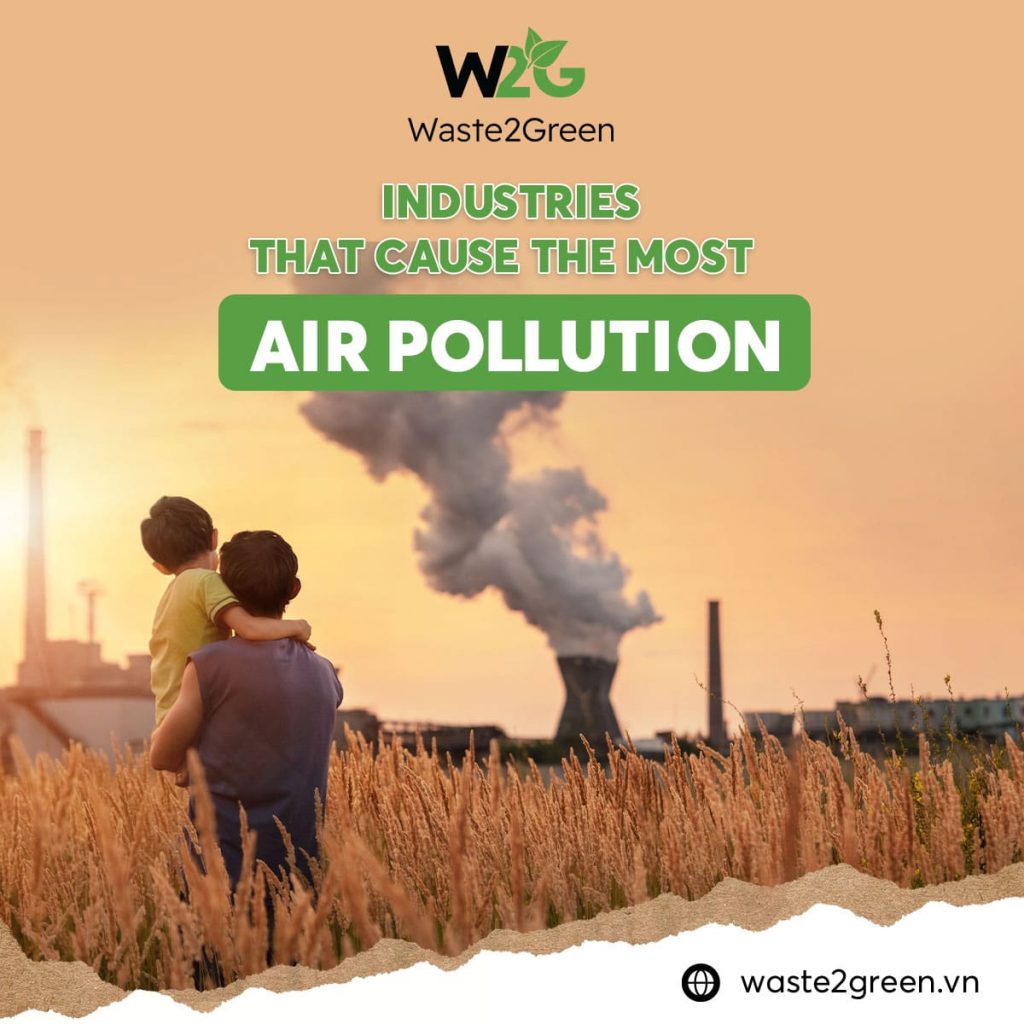
1. Industrial manufacturing
Industrial production activities of industries such as chemicals, raw materials, food, etc. have been affecting air quality more than we can imagine. Smoke and dust from the exhaust pipes of factories and factories in industrial zones darkened the sky. They emit a large amount of gas such as CO2, CO, SO2, NOx and some other organic substances with extremely high concentrations.
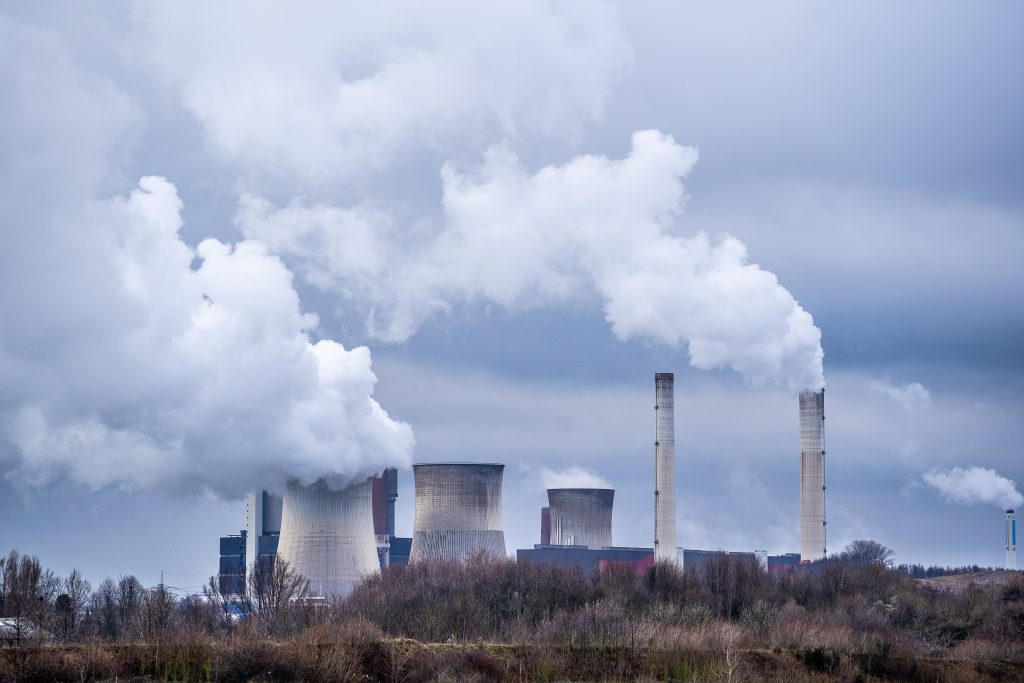
Industrial waste that is not treated properly causes industrial parks not only to pollute the air, but also seriously affect human health, and may be prone to respiratory diseases, or even chronic diseases.
2. Traffic emissions
The means of transport are increasing day by day. It cannot be denied that traffic exhaust pollution is one of the main causes of air pollution, especially in big cities or large urban areas, where the proportion of vehicles on the road is higher than in rural areas. According to a report by the International Energy Agency (IEA), transportation contributes 24.34% of carbon each year. In particular, for older vehicles, poorly functioning machinery systems, the greater the emissions. Especially, for old cars, poor mechanical systems, the higher the emissions. Vehicles continuously release toxic substances into the air such as CO, NO2, SO2, etc. with extremely high concentrations.
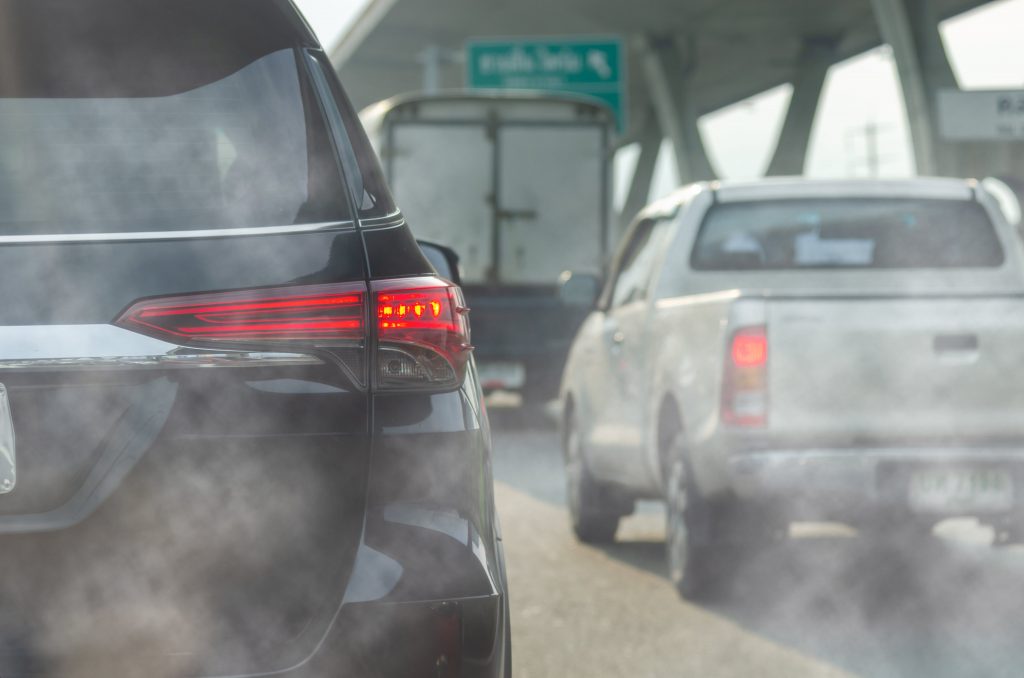
3. Handling domestic waste
Currently, the treatment of domestic waste is always the top concern of the government, businesses and individuals, moreover, the amount of organic waste accounts for a large proportion, but the treatment method is mainly by manual burning. While the garbage is gathered at the landfill to wait for treatment, the entire volume of organic waste will often decompose first, producing a large amount of greenhouse gas along with an unpleasant odor.
Besides, manual burning is often at a low temperature combined with the failure to separate waste before treatment, causing all waste including plastics such as plastic bottles, rubber, plastic bags, etc. are burned incompletely, leading to the production of toxic gasses such as: carbon oxides, hydrocarbons, benzene, dioxins, etc. This has directly threatened human health and the surrounding environment.
4. Agricultural manufacturing
Not only causing water pollution, agricultural production activities also have a serious impact on the decreasing air quality. Besides, the abuse of pesticides and chemical fertilizers, the discharge of a large amount of organic waste into the environment also causes serious environmental impacts. Because in the process of decomposing organic waste, it often produces an unpleasant odor along with a large amount of CO2 emitted into the environment. Moreover, this organic waste is not collected regularly, it will affect not only air pollution but also the health of people living around.
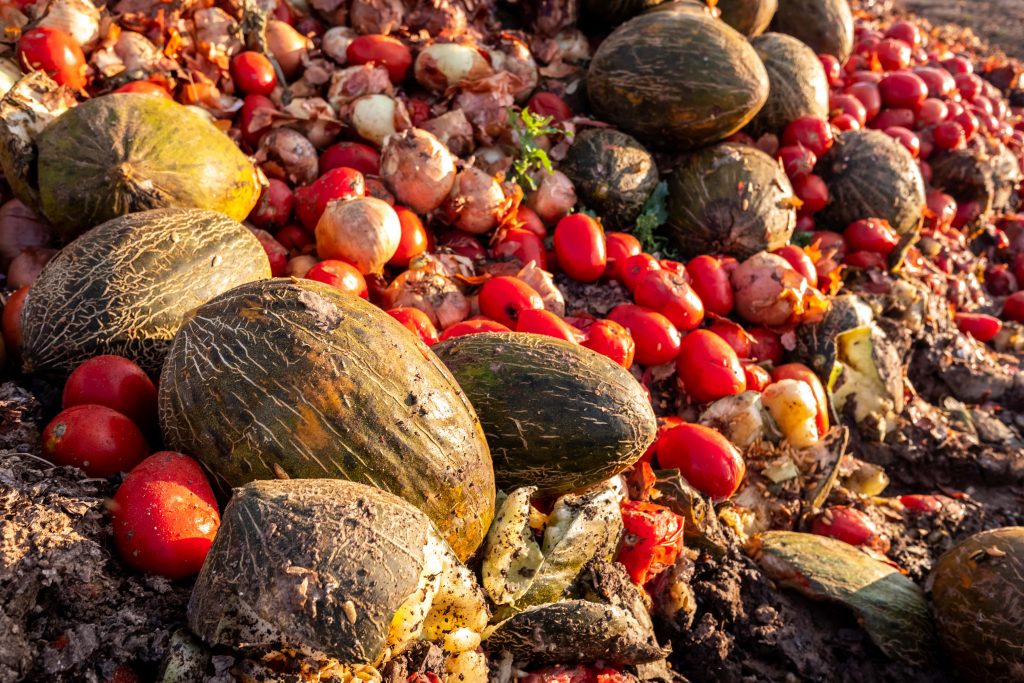
Waste2Green – Great green environmental protection solution for businesses
Waste2Green belongs to iATT Green company, a product developed by iATT Group, formerly Autotech Machinery JSC, a leading enterprise in the field of automation, specializing in designing and manufacturing industrial machines for industries.
With the desire for economic development to go hand in hand with sustainable development, always putting social responsibility first, iATT Green – iATT Group has brought to businesses smart organic electric composter – Waste2Green, in order to accompany businesses to make greater efforts in fulfilling the responsibility of each business with its own living environment.
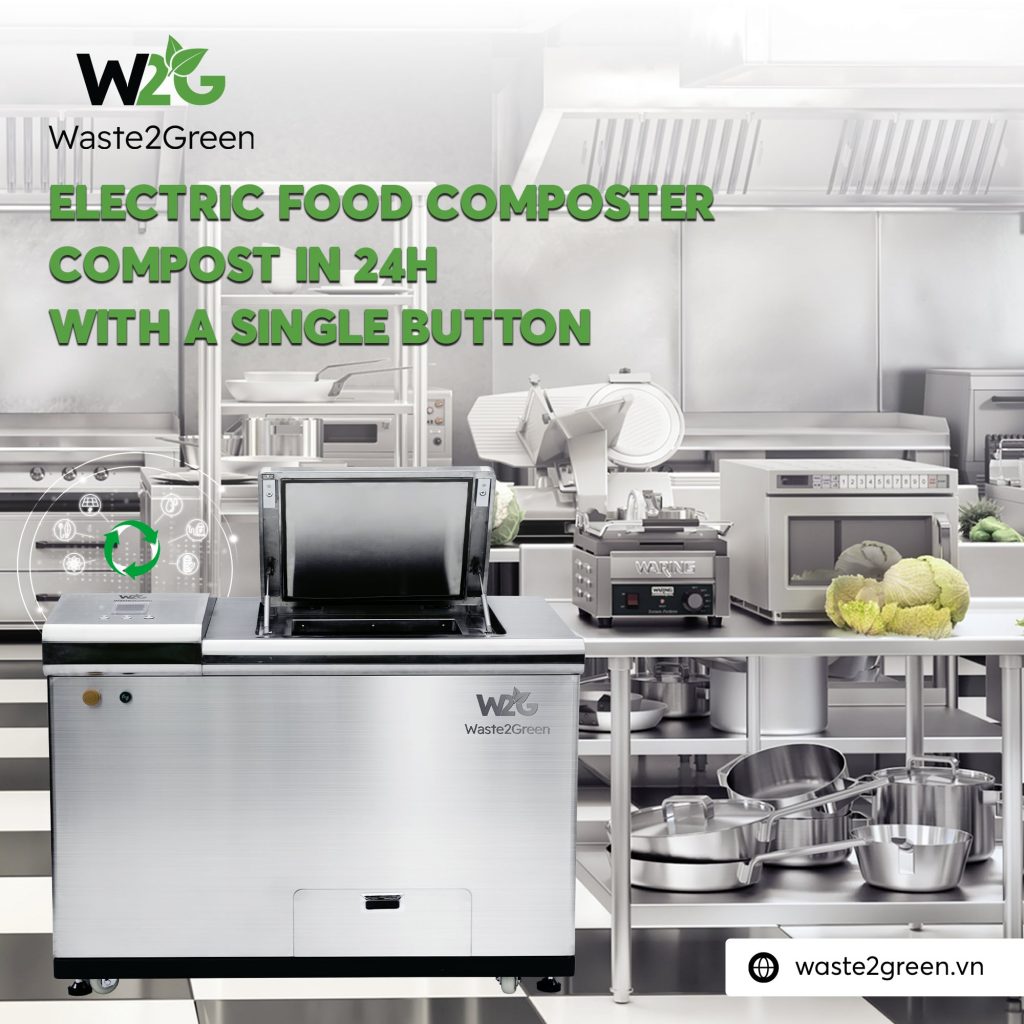
Waste2Geen was born with the first product, a smart organic electric composter, with a wide range of product options for businesses to bring about a great and comprehensive impact in the goal of protecting the living environment. In the future, Waste2Green will make continuous research and development efforts to bring more environmental protection products.
Speak to Waste2Green
Contact Waste2Green to know more about our smart electric food composter that suits your business needs!
- Headquarters: No. 11-15, Street 17, Industry – Urban – Service Complex VSIP Bac Ninh, Dai Dong Commune, Tien Du District, Bac Ninh Province, Vietnam
- Ho Chi Minh City Branch: 49 Street No. 12, KP5 – Hiep Binh Chanh Ward – Thu Duc City – Ho Chi Minh City
- Hotline: 0903 232 625
- Email: info@auto-tech.vn | info@waste2green.vn
Find out more our products at https://waste2green.vn/
Connect with us:
- Linkedin Waste2Green: https://www.linkedin.com/company/waste2green/
- Facebook Waste2Green: https://www.facebook.com/Waste2Green
- Linkedin Autotech: https://www.linkedin.com/company/autotechvn/
